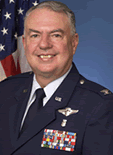
Clinical Challenges in the Community Management of Patients with Special Needs in Disaster
Course Description:
The evolution of modern medical competencies and expanded populations of increased vulnerability pose a significant challenge to today’s public health professional in providing shelter and support during times of disaster in both the urban and rural environment. This course will address some of the significant existing challenges and examine how the roles and responsibilities of responding/receiving personnel, triage and transport and the capabilities within communities can be enhanced through more extensive planning coupled with focused preparation. The application of lessons learned and the careful design of infrastructure, harvesting local experience on a global scale constitutes a critical resource for future problem solving and development in improving community response to disaster.
Target Audience
Academic Faculty/Staff, Federal Government Employees, State Government Employees, Local Government Employees, Non-Government Employees and Students
Learning Objectives
- Identify and Analyze existing and emerging shortfalls in existing community medical capabilities
- Explore available means of satisfying identified shortfalls to acceptable standards through modifications to individual roles/competencies, processes, transport and facilities
- Examine opportunities for enhanced planning and process improvement through the effective harvesting of experience and implementation of community specific preparation and training
Instructors:

Col. Joseph Contiguglia, MD, MPH&TM, USAF, MC, CFS
Dr. Joseph Contiguglia received an M.D. in medicine and surgery from the University of Siena, an MPH&TM from Tulane School of Public Health and Tropical Medicine and an MBA from St. Mary’s University. He holds clinical faculty appointments at the University of North Dakota, Texas Tech University Health Sciences Center and Tulane School of Public Health and Tropical Medicine.
Colonel Contiguglia retired from the USAF, effective 1 January 2007, as director of operational medicine and chairman of the Department of Military Medicine, Keesler Medical Center, Biloxi, MS. His military experiences include:
Surgeon general-appointed International Health Specialist
Director of the 2004/2005 LIFESAVER Exercises.
Surgeon 474 EOSS, Apiay, Colombia, supporting the Colombian Special Forces
Chief, Medical Operations, United States Air Forces in Europe
Surgeon, 3rd Air Force, responsible for medical operations in sub-saharan Africa
Deputy Command Surgeon, JTF Shining Hope supporting refugees in the Balkans
Headed NATO preparation team for Operation Allied Force in NW Turkey
Surgeon, Joint Task Force - Southwest Asia, Operation Desert Storm
Medical Commander, Operation Safe Haven, Republic of Panama,
Chief, Occupational Medicine and Environmental Health, RAAF
edical Program Director of the Tactical Air Warfare Center’s Chemical Weapons Defense and Operational Employment Exercises
Surgeon, OPERATION ELF-1, Saudi Arabia (Iran/Iraq War)
Medical Project Manager of the South East Asian Refugee Evacuation
Dr. Contiguglia is married and has three children.
Available Credit
- 8.00 Participation/CETulane Professional and Continuing Education (PaCE) awards 8.00 hour(s) of credit for completing Clinical Challenges in the Community Management of Patients with Special Needs in Disaster
Price
Required Hardware/software
System Settings
This course is designed to work most effectively if your computer and internet connection meet certain minimal requirements. This course can be accessed using a Windows 10 PC or a Mac with High Sierra1, Mojave, or Catalina. Pop-up blockers should be disabled when viewing the course. Internet Explorer 11 (for Windows 10), or the current version of Google Chrome, Mozilla Firefox, or Apple Safari (for Windows 10 and or Mac) is required. Many of our courses require Java and JavaScript enabled.
Links to External Websites
Links to websites outside this course will open in a new window or tab. Some browsers may minimize the course window. If this occurs, maximize the course window to return to the course.
Adobe Acrobat Reader (for desktops and laptops)
Adobe Acrobat Reader is required to access some documents in this course. If you need to download a free copy of Acrobat Reader, click here.
Internet Connection Speed
A minimum download speed of 1.5 Mbps is recommended for an optimal experience, which is commonly the speed associated with a basic DSL or a cellular/satellite connection. A faster connection, such as cable or fiber service, with further enhance your online experience. A Wi-Fi connection is generally acceptable, but it is dependent upon one of the two services mentioned above. You can check your internet connection speed at http://www.speedtest.net/.

 Facebook
Facebook X
X LinkedIn
LinkedIn Forward
Forward